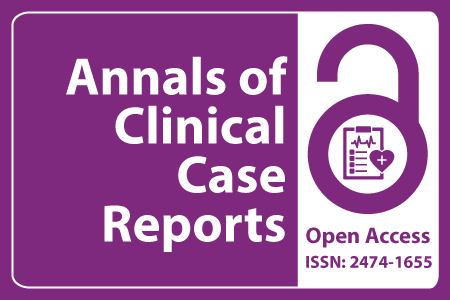
Journal Basic Info
- Impact Factor: 1.809**
- H-Index: 6
- ISSN: 2474-1655
- DOI: 10.25107/2474-1655
Major Scope
- Molecular Biology
- Physiology
- Cardiology
- Hematology
- Orthopedic Surgery
- Cancer Clinic
- Psychiatry and Mental Health
- Physical Medicine & Rehabilitation
Abstract
Citation: Ann Clin Case Rep. 2021;6(1):2023.DOI: 10.25107/2474-1655.2023
Diagnosis of Tetanus Assisted by Next-Generation Sequencing Analysis of Etiology: A Case Report
Yuling An1#*, Yi Guo2#, Zhongjun An3, You Peng4, Mingming Fan1, Ziyu Li1, Xiaomeng Yi1 and Huimin Yi1
1Department of Surgical Intensive Care Unit, The Third Affiliated Hospital of Sun Yat-sen University, China
2Department of Surgical Intensive Care Unit, Fuwai Yunnan Cardiovascular Hospital, China
3Department of Stomatology, Rizhao Central Hospital, China
4Department of Joint Replacement and Trauma Surgery, The Third Affiliated Hospital of Sun Yat-sen University, China
#These authors contributed equally to this work
PDF Full Text Case Report | Open Access
Abstract:
Background: Tetanus is a rare surgical infectious disease with a high mortality especially in severe tetanus with autonomic instability. However, tetanus may prove to be difficult to be diagnosed for the rarity of tetanus and the difficulty of cultivation of Clostridium tetani. Herein, we reported the first case of diagnosis assistant by next-generation sequencing analysis of etiology. Case Report: A 50-year-old male patient was admitted to our hospital 10 days after the right arm injury due to pain and masticatory weakness. The pathogen of wound secretion was confirmed to be clostridium tetanus by next-generation sequencing analysis of etiology. The patient's condition rapidly progressed to a severe state with autonomic instability. The patient finally recovered and discharged after surgical debridement twice and comprehensive treatment in ICU, including deep analgesia and sedation with dexmedetomidine. Conclusion: The diagnosis of tetanus is very rare. We reported a case of severe tetanus diagnosed assistant by next-generation sequencing analysis of etiology and finally successful treatment of his autonomic instability with dexmedetomidine. This case suggested that early diagnosis and reasonable intervention of severe tetanus could reduce mortality.
Keywords:
Tetanus; Next-Generation Sequencing (NGS); Autonomic instability; Dexmedetomidine; Prognosis
Cite the Article:
An Y, Guo Y, An Z, Peng Y, Fan M, Li Z, et al. Diagnosis of Tetanus Assisted by Next-Generation Sequencing Analysis of Etiology: A Case Report. Ann Clin Case Rep. 2021; 6: 2023..













